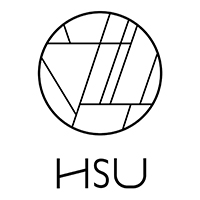The island has been at the forefront of technological advancement, but can regulators adapt to rapidly evolving virtual currencies?
Bitcoin emerged in 2009 to circumvent centralised financial control through decentralised, peer-to-peer payments. In the early stage of development of virtual currencies, centralised exchanges came into being to improve trading efficiency.

Managing Partner
HSU & Associates in Taipei
steven.hsu@hsu.legal
Today, virtual currency trading is still mainly conducted in centralised exchanges, but the bankruptcy of crypto exchange platform FTX has eroded confidence in them, and the importance of decentralised finance increases daily.
As early as 2013, the Central Bank and Financial Supervisory Commission (FSC) of Taiwan confirmed that a virtual currency was not fiat, but a digital “virtual commodity”. However, a virtual currency inevitably achieved its payment, trading, loan and investment purposes among participants, whether the transaction is centralised or decentralised.
Furthermore, whether the government recognises it or not, there is no denying that a virtual currency is an alternative finance, bound to be related to real finance, so moderate control is necessary.
Today’s relevant laws and regulations in Taiwan do not deliberately distinguish between centralised and decentralised finance but focus on a virtual currency itself. Taiwan often follows the US Securities and Exchange Commission (SEC) in financial control.
The SEC proposed the Framework for “Investment Contract” Analysis of Digital Assets in 2019 to judge whether particular digital assets are securities according to standards on investment contracts set by the US Supreme Court in the Howey test, which attempts to determine if there is an investment of money in a common enterprise with a reasonable expectation of profits to be derived from the efforts of others.
Just three months later, Taiwan’s FSC issued the order that any virtual currency satisfying the Howey test shall be considered as security under the Securities and Exchange Act of Taiwan.
Therefore, the security token is regulated under the Securities and Exchange Act and can be divided into two categories, according to different markets:
-

Ashley Chao
Attorney-at-Law
HSU & Associates in Taipei
ashley.chao@hsu.legalPrimary market. For those raising funds below NTD30 million (USD100,000), the Securities and Exchange Act shall apply in terms of qualification of the issuer, object of raising funds, process and operation management. For those raising funds of more than NTD30 million, the sandbox experiment is required in accordance with the Financial Technology Development and Innovative Experiment Act. From the fact that the raised object is limited to the new Taiwan dollar rather than a virtual currency, it can be seen that what is raised by security token offerings of the security virtual currency regulated in Taiwan is fiat. Due to the robust restrictions, there are no applicants at present.
- Secondary market. The FSC amended the administrative rules issued under Taiwan’s Securities and Exchange Act to match the above-mentioned orders, including standards governing the establishment of securities firms requiring minimum paid-in capital of a securities dealer to be NTD100 million, and regulations governing responsible persons and associated persons of securities firms, requiring securities dealers to comply with Taipei Exchange regulations (although some obligations of relevant responsible persons and associated persons are exempted).
The FSC has no other control over virtual currencies other than money laundering and preventing terrorism financing. However, the FSC oversees security virtual currencies (the virtual currency that qualifies as security under securities laws).
The reasons for such disparity can also be found in the US situation. The reason why the SEC cites the Howey test to distinguish a security virtual currency from a non-security virtual currency (generally called a functional token) is not that it does not consider regulating the latter, but because of the structure of the regulatory authority.
In the US, securities are under the jurisdiction of the SEC, while derivative financial products such as futures, options, swaps and others unrelated to securities in the physical world are under the jurisdiction of the Commodity Futures Trading Commission (CFTC).
Therefore, one of the key points of the SEC’s proposal of the framework is to clarify the scope of the SEC’s regulation, and the scope changes with fluctuating interpretations of the Howey test. The US trend is to relax the interpretation and expand jurisdiction of the SEC.
In Taiwan, the Securities and Futures Bureau under the FSC manages centralised financial transactions such as securities, futures and options, while the FSC Banking Bureau manages forward transactions, swaps and other over-the-counter financial transactions.

Attorney-at-Law
HSU & Associates in Taipei
kimi.chang@hsu.legal
This means the FSC’s regulation covers all financial activities, which is different from the separation of the SEC and CFTC. In other words, there is no reason why the FSC of Taiwan cannot regulate the alternative finance of the virtual currency, whether centralised or decentralised, a security virtual currency or a functional virtual currency.
Nevertheless, the FSC’s chair, Huang Tien-mu, once noted that “virtual currency issued overseas is not issued by institutions supervised by the FSC”, and “not all investment commodities are controlled by the FSC”. He stressed that due to the so-called halo effect, competent authorities should not intervene too much at the beginning of the development of emerging technologies, lest investors consider competent authorities are endorsing the currency.
MONEY LAUNDERING
Virtual currencies still have a positive effect. At present, regulation is limited to prevention and control of money laundering and financing terrorism.
The competent authority to prevent and control money laundering and financing terrorism in Taiwan is the Ministry of Justice. To cope with the development of virtual currencies, their platforms and transactions are regarded as financial institutions within the standardised scope in the Money Laundering Control Act.
On the other hand, although there is no provision for virtual currencies in the Counter-Terrorism Financing Act, the Regulations Governing Anti-Money Laundering and Countering the Financing of Terrorism for Enterprises Handling Virtual Currency Platform or Transaction define virtual currency platforms and transactions as engaging in one of the following:
-
- Exchange of a virtual currency with new Taiwan dollars, foreign currencies and currencies issued in mainland China, Hong Kong or Macau;
- Exchange between virtual currencies;
- Transfer of a virtual currency;
- Keeping and managing virtual currencies or providing relevant management tools; and
- Participating in and providing financial services related to the issuance or sale of virtual currencies.
Except for 1, which does not apply to decentralised finance by nature, decentralised finance will be regulated when conducting the other four activities.
The above-mentioned regulations require virtual currency platforms and transactions to comply with customer identification, risk management and transaction monitoring. For customer identification, they require that enterprises “shall not accept anonymous accounts, or accounts in fictitious names, for establishing or maintaining a business relationship”.
Therefore, it is mandatory for virtual currency platforms and transactions to adopt a real-name registration system for their members, which conflicts with the nature of decentralised transactions and anti-censorship.
Although it is not technically impossible, to set up decentralised finance platforms or transactions in Taiwan it is necessary to add a real-name requirement to related smart contracts.
However, to achieve complete decentralisation, the content of the agreement on decentralised finance is usually decided by a group of governance token holders, who may be located all over the world, making it difficult to reach a consensus on requiring users’ real names.
LOOKING AHEAD
In June 2022, two US senators proposed the Responsible Financial Innovation Act, attempting to put decentralised autonomous organisations (DAOs), which are closely related to decentralised finance, under regulation. This would define them as commercial entities under tax law, required to establish companies or other similar organisations in accordance with the laws in their jurisdictions.
This will be a severe test of the anti-censorship feature of DAOs and decentralised finance. If the final legislation is passed in the US, similar regulations may be adopted in future in Taiwan.
Steven Hsu is a managing partner at HSU & Associates in Taipei. He can be contacted by e-mail at steven.hsu@hsu.legal
Ashley Chao is a attorney-at-law at HSU & Associates in Taipei. She can be contacted by e-mail at ashley.chao@hsu.legal
Kimi Chang is a attorney-at-law at HSU & Associates in Taipei. She can be contacted by e-mail at kimi.chang@hsu.legal

HSU & ASSOCIATES
4/F, No. 33, Ln. 161, Sec. 1
Xinsheng S. Rd., Da’an Dist.
Taipei, 106090 Taiwan
Contact details:
Tel: +886 2 6605 0818
Email: attorneys@hsu.legal





























